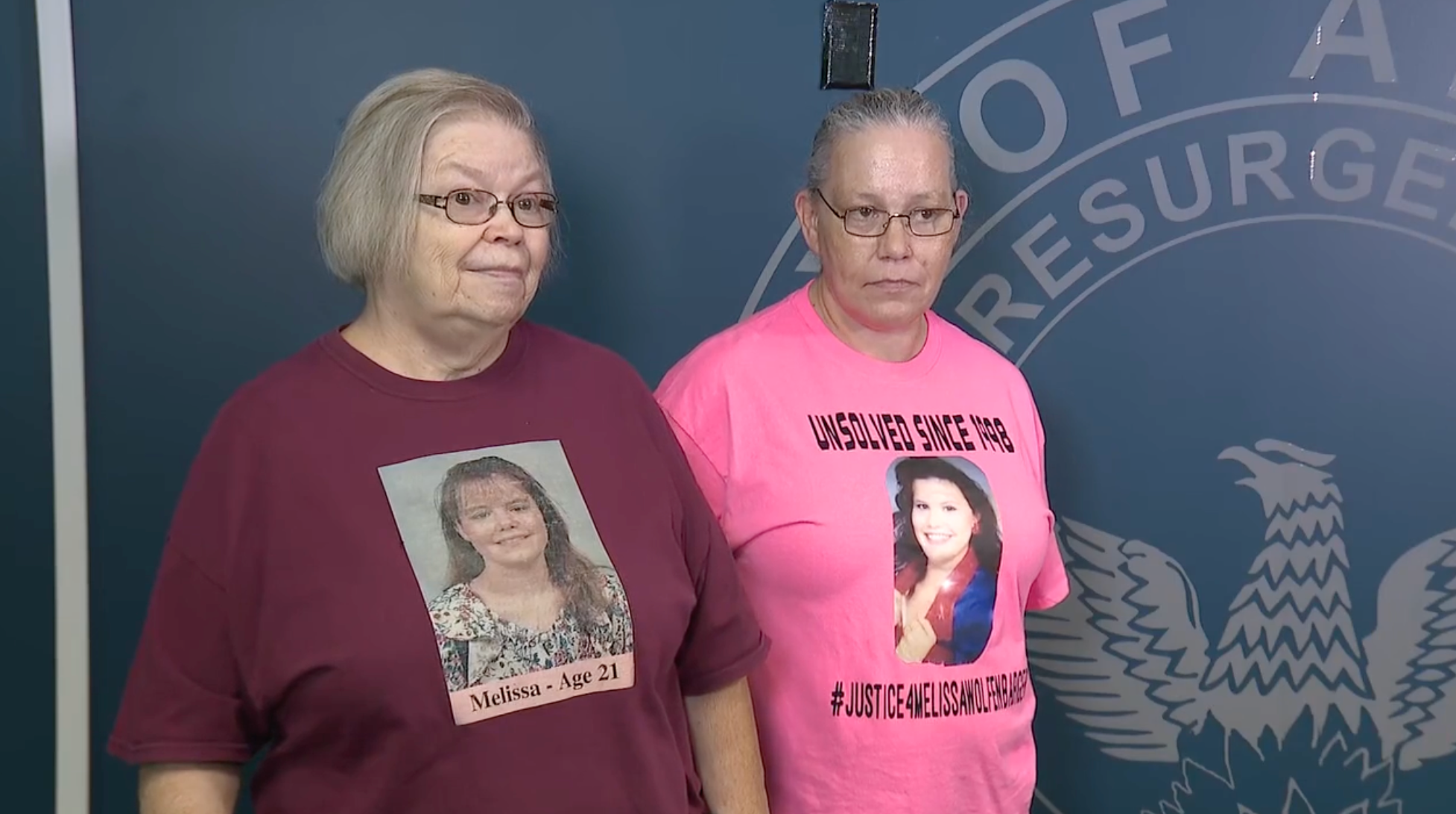
A Georgia man has been acquitted of murder more than two decades after his wife’s remains were found stuffed in trash bags near his workplace.
Christopher Wolfenbarger, who was arrested in August 2024 for the murder of Melissa Wolfenbarger, leaned back in his wheelchair and heaved a sigh of relief when the verdict was read on Friday.
Jurors deliberated for just two hours before coming to a decision, a devastating blow to Melissa’s family who had fought for years to bring charges in the case.

When Melissa disappeared in late 1998, Wolfenbarger told police she had left on her own to pursue her dream of starting a new life in California, the Atlanta Police Department told Dateline in 2021.
The next year, Melissa’s remains, including her head, were found stuffed in trash bags “directly across the street” from where Wolfenbarger worked at the time. Her torso was never found.
But the remains were not identified until 2003 – when a DNA sample used to help convict her own father Carl Patton of an unrelated murder, according to Atlanta police.
Carl Patton was arrested and later charged for a string of unrelated killings from the 1970s known as the Flint River murders.

“His arrest is what finally identified her remains,” Melissa’s mother Norma Patton previously told The Independent. “If he had never been arrested, we might have never known.”
Melissa’s death was not at the hands of her father, who had been cleared in her murder, but what happened to her remained a mystery for decades.
Her case only began to gain some traction in 2017 when Crime Scene Investigator Sheryl “Mac” McCollum got her hands on it after the slain woman’s mother came to her for help.
“You can’t give up. You just keep going. Talk to anyone who will listen, because you don’t know who that person might be to help,” Norma said. “That’s what Sheryl did for us. She opened the door and helped us walk through it.”

Melissa’s case was the first one to be featured on McCollum’s podcast Zone 7, when it launched in February 2023. Then in a stunning turn of events, over a year later in April 2024, a listener who heard the episode reached out to McCollum and shared a crucial bit of information.
Three months later in August 2024, Melissa’s husband was arrested and indicted by a grand jury for her murder, with DNA connecting him to the crime. The long-awaited trial began a year later and jurors heard just a week of testimony before they were handed the case.
Melissa’s mother, Norma Patton, took the stand earlier this week, revealing that she was once married to a serial killer Carl Patton and that she had helped him with the murders.
“I helped him dispose of the bodies,” Patton admitted. She took a plea deal for immunity in exchange for testifying against him.
A jury quickly found Christopher Wolfenbarger not guilty of the murder of his wife, Melissa Wolfenbarger. The jury deliberated for about two hours. The defense pointed to her parents as the possible killers. pic.twitter.com/fzFPzlEK0s
— Law&Crime Network (@LawCrimeNetwork) August 22, 2025
Jurors also heard unsettling testimony from Christina Garrett, the daughter of Melissa and Wolfenbarger, as she recalled the chilling moment her father described how a killer could successfully hide a body.
In the prosecution’s closing argument, Fulton County Deputy District Attorney Vincent Faucett described Melissa as being manipulated, intimidated, coerced and abused, arguing that the defendant murdered Melissa when he lost control over her.
But defense attorney Joel McDurmon delivered his closing argument, arguing the state’s case contained gaping holes and that there was no direct evidence pointing to his client.







